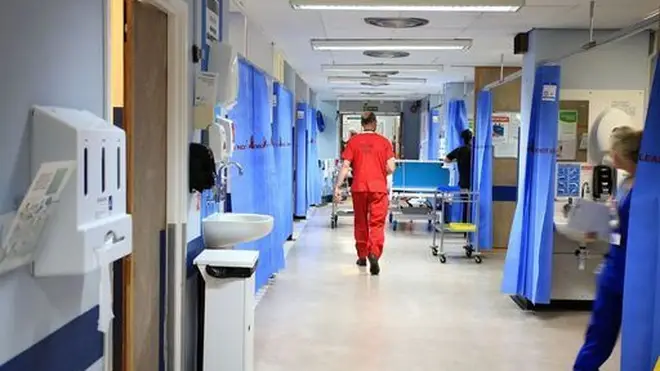
Iain Dale 7pm - 10pm
15 April 2021, 14:15

At the end of February 2021, 4.7 million people were waiting to start treatment, according to data from NHS England.
This means that hospital waiting lists have reached a new high, with almost 390,000 people waiting for over a year.
These mark the highest figure since records began in August 2007.
NHS England highlighted that staff had delivered almost two million operations and other elective care in January and February, one of the busiest periods of the pandemic.
In February, there were 387,885 people waiting for over a year to start hospital treatment. A year ago, in February 2020, the number of those having to wait more than 52 weeks to start treatment was just 1,613.
READ MORE: Pubs, restaurants and offices must be well ventilated to halt covid spread, doctors warn
READ MORE: Surge testing deployed in more London areas as South Africa variant found

Why 1% NHS pay rise could actually be a pay cut: explained
Charities and health organisations are warning that the Covid-19 pandemic is having a “catastrophic" impact on NHS services.
Figures show that 174,624 urgent cancer referrals were made by GPs in February, compared with 190,369 a year before, a year-on-year drop of 8%.
This follows a year-on-year fall of 11% in January but an increase of 7% in December 2020.
Urgent referrals where breast cancer symptoms were present, though not initially suspected, were down from 13,627 in February 2020 to 12,199 in February 2021, a fall of 10%.
Sara Bainbridge, head of policy at Macmillan Cancer Support, said the data "further illustrates the catastrophic impact of Covid-19 on cancer diagnosis and treatment".
She added: "Tens of thousands of people are still missing a diagnosis due to disruption caused by the pandemic, which could affect their prognosis."
Chris Hopson, chief executive of NHS Providers, said the figures showed "how hard trusts are working to recover care backlogs as well as the size of the future challenge they face, despite a decline in Covid-19 patients".
Figures also showed that the number of people admitted for routine hospital treatment was down 47% in February compared with a year earlier.
Some 152,642 patients were admitted for treatment during the month, compared with 285,918 in February 2020.
The year-on-year decrease recorded in January was 54%, while in December 2020 the drop was 25%.

PM explains strain on NHS
Tim Mitchell, vice-president of the Royal College of Surgeons of England said: "The NHS had a brutal start to the year because of the second wave of Covid-19, and this is reflected in today's figures."
"Although we did see the number of patients with Covid-19 decline in February, hospitals were still under huge pressure due to having to separate Covid and non-Covid care, staff having to isolate or being ill with the virus, and the massive resource needed to support the essential national vaccination effort.
"Although the most urgent operations, for cancer and life-threatening conditions, went ahead, hundreds of thousands of patients waiting for routine surgery such as hip and knee operations, cochlear implants and vascular operations had their treatment cancelled or postponed."
NHS England said February saw 22,000 people begin treatment for cancer, in line with February 2020, while the 174,000 people being referred for cancer checks was twice as many as during the peak of the first Covid-19 wave in April last year.
NHS England national medical director Professor Stephen Powis said: "Treating 400,000 patients with Covid-19 over the course of the last year has inevitably had an impact on the NHS, but it is a testament to the hard work and dedication of staff that they managed to deliver almost two million ops and procedures in the face of the winter wave and improve waiting times for them, along with A&E and ambulance services."